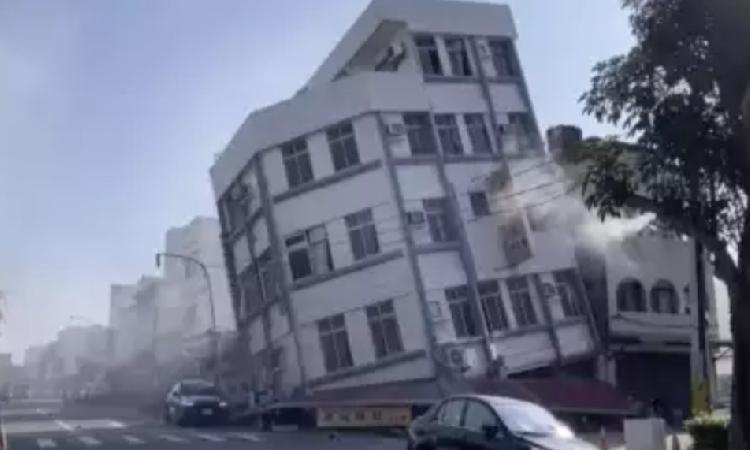

On Wednesday, Taiwan experienced the strongest earthquake it has had in 25 years. There were hundreds of injuries, at least nine fatalities, damage to buildings and highways, and disruptions to rail operations.
Strong earthquakes frequently occur in Taiwan, but experts claim that because of the island's exceptional earthquake readiness, the damage they do to its 23 million inhabitants has been comparatively limited.
Here is a closer look at Taiwan’s history of earthquakes:
REASONS FOR MANY TEMBLORS?
Taiwan is situated on the Pacific "Ring of Fire," a chain of seismic faults that encircles the Pacific Ocean and is the epicenter of the majority of earthquakes worldwide.
Because of the strain built up from the interactions of the Philippine Sea Plate and the Eurasian Plate, which may cause abrupt releases in the form of earthquakes, the area is especially susceptible to temblors.
The steep topography of the area can amplify earth tremors, resulting in landslides. A number of these landslides happened on Taiwan's eastern coast in the vicinity of eastern Hualien County, close to the epicenter of Wednesday's earthquake. Falling debris struck roads and tunnels, crushing cars and killing a number of people.
To what extent is Taiwan prepared to handle earthquakes?
The U.S. Geological Survey said that Wednesday's earthquake had a magnitude of 7.4, whereas Taiwan's seismic monitoring agency reported a magnitude of 7.2. Although it was felt powerfully in Taipei, the capital, it only caused minor damages and damaged numerous structures in Hualien.
Even though the earthquake occurred during morning rush hour, it barely affected the normal commute. In a matter of minutes, people were driving to their offices and parents were once more strolling their kids to school.
According to Stephen Gao, a professor of seismology at Missouri University of Science and Technology, Taiwan has some of the most sophisticated earthquake preparedness in the world. Strict building regulations, a top-notch seismological network, and extensive public awareness programs about earthquake safety have all been put in place on the island.
The government offers rebates to homeowners who examine the seismic resistance of their houses and is constantly revising the amount of quake resistance required of both new and existing buildings, which may result in higher construction costs.
Five individuals found guilty of carelessness and sentenced to prison terms were involved in the construction of a 17-story high-rise apartment complex in Tainan, on the southwestern coast of the island, which was the only major structure to collapse after the 2016 earthquake that killed dozens of people.
Taiwan is also encouraging earthquake exercises at companies and schools, and announcements about earthquake safety are frequently broadcast on cellphones and the public media.
According to Gao, these actions have greatly increased Taiwan's ability to withstand earthquakes, reducing the likelihood of catastrophic damage and fatalities.
LIVING WITH EARTHQUAKES
According to the USGS, since 1980, there have been about 100 earthquakes with a magnitude exceeding 5.5 and about 2,000 earthquakes with a magnitude of 4.0 or more in Taiwan and the surrounding waters.
The largest known earthquake to have struck the island in recent memory, measuring 7.7 on September 21, 1999. It resulted in 2,400 fatalities, 100,000 injuries, and the destruction of thousands of structures.
In 2018, Hualien County experienced a catastrophic earthquake that caused several structures, including a historic hotel, to collapse.
Unfortunately, Gao stated that there will be significant earthquake activity for millions of years to come. This emphasizes how crucial it is to be resilient and ready for any seismic risk that may arise.